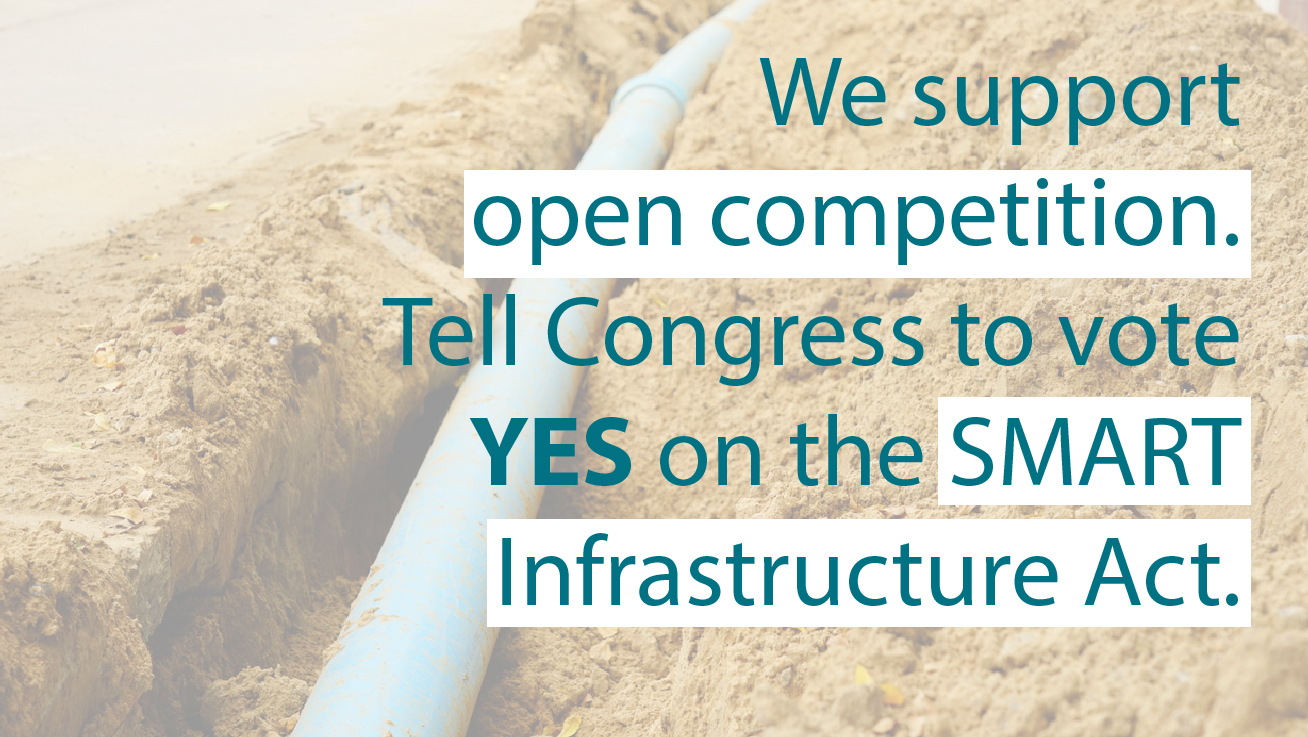This website uses cookies so that we can provide you with the best user experience possible. Cookie information is stored in your browser and performs functions such as recognising you when you return to our website and helping our team to understand which sections of the website you find most interesting and useful.
Press Room
SMART Bill Could Save $371 Billion on Water Infrastructure
Oct. 28, 2019
A bipartisan group of lawmakers has introduced legislation to require competitive bidding procedures be used nationwide for federal infrastructure projects. The legislation could save U.S. taxpayers an estimated $370 billion on water infrastructure projects alone, according to the National Taxpayers Union.
The Sustainable Municipal Access to Resilient Technology in Infrastructure Act (SMART Infrastructure) would reduce overly burdensome regulations and require fair and open competition among suppliers of construction materials for infrastructure projects that receive federal funding. The legislation would also protect engineers’ ability to exercise their professional judgment in choosing construction materials while allowing municipalities to do more projects with their existing limited financial resources.
The Vinyl Institute strongly supports the SMART Infrastructure Act.
“Finding the funding to update our aging infrastructure is a herculean task made even more difficult because of outdated procurement practices that mandate the use of certain legacy materials. Restricting material choices means taxpayers, construction crews, and municipalities are overpaying for pipes and other products. That’s money that could be going to modernize water systems,” said VI Chairman Dick Heinle.
U.S. water infrastructure desperately needs an upgrade.
Much of the U.S. water infrastructure was built decades ago or more. As a result, there are 240,000 water main breaks in the U.S. each year—or an average of 660 per day. Approximately 17 percent of all potable water is lost to leakage.
Currently, 75 percent of municipalities dictate which materials and pipes must be used in water projects. This lack of competition increases costs and hampers innovation.

Simple, common-sense legislation that allows competition to help stretch U.S. investments in water infrastructure is good for business, taxpayers, local governments, and the nation.
A study by BCC Research found that municipalities that allow open competition save in excess of 25 percent on pipe costs. Over a 10-year period, this translates into:
- $20.6 billion in water pipe cost savings
- $22.3 billion in storm pipe cost savings
This means, for example, that North Carolina alone could see savings of up to 50 percent, or $155,902 per mile, in pipe costs. For Michigan, 27-34 percent (and up to $114,154 per mile); for Ohio, 32-35 percent (and up to $97,680 per mile).
Opening up federally funded infrastructure projects to competition also provides new opportunities for municipalities to select PVC pipe. Unlike the ductile iron pipes that corrode and rust until they fail, PVC pipe is immune to rust and corrosion. With open competition, PVC pipe manufacturers will have a level playing field to offer smart, sustainable solutions for America’s 21st century water infrastructure. More importantly, taxpayers will see more pressing projects completed.
To show your support for the SMART Infrastructure Act, write to your representative here.


